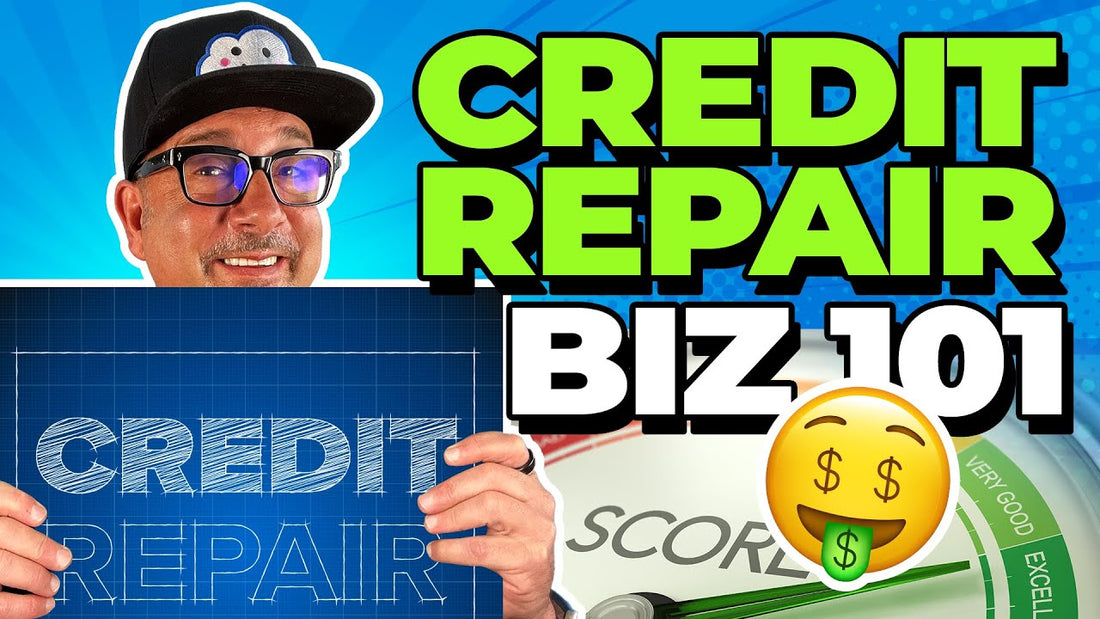
How to Start a Credit Repair Business
Share
How to Start a Credit Repair Business
By Albert Owens | For DMUnderdogs.com
Starting a credit repair business can be a lucrative and rewarding venture, especially in today’s financial landscape, where many consumers need help improving their credit scores. With the right tools and knowledge, you can assist individuals in removing inaccuracies from their credit reports, guiding them toward financial stability. One of the best platforms for launching your credit repair business is Credit Repair Cloud, a comprehensive software solution that simplifies the process of managing and scaling your business. Additionally, utilizing Credit Hero Score allows you to provide valuable insights to your clients regarding their credit status.
In this blog post, we will walk you through the essential steps to start your credit repair business, from legal considerations to marketing strategies. Whether you're new to credit repair or looking to scale your existing efforts, this guide will equip you with everything you need to succeed.
Step 1: Understanding the Credit Repair Industry
Before diving into the business, it’s crucial to understand the fundamentals of credit repair. Credit repair involves disputing errors on credit reports, negotiating with creditors, and educating clients on responsible credit habits. The key to success in this industry is compliance with the Credit Repair Organizations Act (CROA), ensuring you operate legally and ethically.
Some key aspects to consider:
- Learn about the Fair Credit Reporting Act (FCRA) and Fair Debt Collection Practices Act (FDCPA).
- Familiarize yourself with different types of negative items that appear on credit reports.
- Understand how to communicate with credit bureaus and creditors effectively.
By equipping yourself with this knowledge, you can confidently provide services that genuinely help your clients.
Step 2: Setting Up Your Credit Repair Business Legally
To operate a legitimate credit repair business, you must comply with local, state, and federal regulations. Here are the steps to ensure legal compliance:
- Register Your Business – Choose a business structure such as an LLC, S-Corp, or sole proprietorship.
- Obtain Necessary Licenses and Permits – Some states require specific licenses for credit repair businesses.
- Get a Business Bank Account – Keeping personal and business finances separate is essential for credibility and tax purposes.
- Develop Legal Agreements – Draft a client contract that outlines your services, pricing, and disclaimers to protect both you and your clients.
By handling these legal aspects, you can build a trustworthy and sustainable business.
Step 3: Choosing the Right Software – Credit Repair Cloud
Managing a credit repair business manually can be overwhelming. This is where Credit Repair Cloud comes in, offering an all-in-one solution to automate client onboarding, dispute letters, and tracking results. Here’s why it’s an invaluable tool for your business:
- Automates Credit Dispute Processes – Saves time by generating and sending dispute letters on behalf of clients.
- CRM Features – Helps you manage client information and interactions efficiently.
- Educational Resources – Provides training to help you become a credit repair expert.
- Scalability – Whether you’re working solo or planning to expand, the platform supports your growth.
By leveraging Credit Repair Cloud, you can streamline your operations and focus on delivering excellent service to your clients.
Step 4: Providing Credit Monitoring with Credit Hero Score
Credit monitoring is a crucial part of helping clients maintain and improve their credit scores. Credit Hero Score is a powerful tool that allows you to monitor clients' credit health in real-time. Here’s how it benefits your business:
- Provides instant access to credit reports and scores.
- Alerts clients to any changes in their credit profile.
- Helps you track the impact of your credit repair efforts.
- Enhances customer retention by offering ongoing value beyond dispute resolution.
Integrating Credit Hero Score into your services ensures your clients stay informed and proactive about their credit status, increasing your business’s credibility and effectiveness.
Step 5: Marketing Your Credit Repair Business
Once your business is set up, the next step is attracting clients. Effective marketing strategies include:
- Building a Website – A professional website establishes credibility and serves as a central hub for your services.
- Social Media Marketing – Platforms like Facebook, Instagram, and LinkedIn are great for reaching potential clients.
- Referral Programs – Offer incentives to existing clients for referring new customers.
- Content Marketing – Share blogs, videos, and success stories to educate and engage your audience.
- Networking – Partner with mortgage brokers, realtors, and financial advisors who can refer clients to you.
Consistent marketing efforts will help you establish a strong presence in the credit repair industry and attract a steady flow of clients.
Conclusion
Starting a credit repair business is an excellent opportunity to help people achieve financial freedom while building a profitable venture. By understanding the industry, setting up your business legally, leveraging Credit Repair Cloud, and incorporating Credit Hero Score, you can create a streamlined and successful operation. Effective marketing strategies will further ensure that your business reaches and assists those in need.
Ready to take the next step? Click the link below to explore Credit Repair Cloud and start building your credit repair empire today!
Sign up for Credit Repair Cloud now and launch your business!
Albert Owens is a production manager by day and a passionate advocate for creators by night. Follow him for more insights on hustling smarter, not harder.


